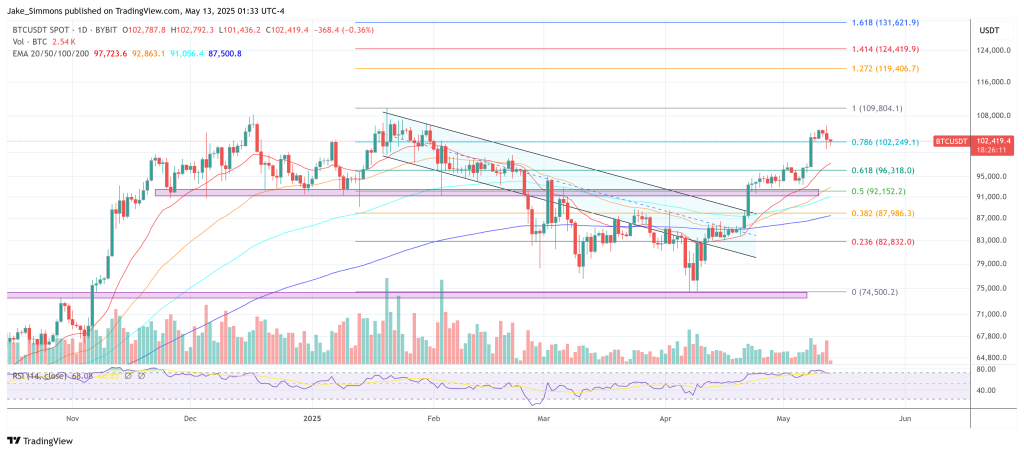Latvia’s economy minister says bitcoin reserves are inevitable

Latvian Economy Minister Viktors Valainis, in his forecast, will soon place a portion of its sovereign balance sheet in Bitcoin. Speaking on the UN: Block podcast, he insisted that “national strategic bitcoin reserves are only a matter of time”, adding that Latvia’s small exports, export-oriented economy could earn super-large profits by moving first.
“We need to think about how to open these doors wider, how we show that we really welcome international companies, and they see the ecosystem here open to cryptocurrencies,” Valainis told the show. “Some people here understand it… there is a very strong ecosystem, which may not be enough, not only in Latvia, but globally.”
Will Latvia establish strategic Bitcoin reserves?
Grassroots power already exists. A citizen petition on the LV platform asked the government to create a Bitcoin reserve and believed that early promoters “make financial and reputational profits.” Valainis supported the proposal: “When I was first asked to comment, I was very supportive. I didn’t see any significant risks. It’s a symbolic way to show that you believe in the industry, that you believe in the future of everything related to Web3, and that you are actively involved in it.”
He even cites the United States – “I think this is what the United States just did – Trump made this decision” – proving that the big jurisdictions are formalizing cryptocurrency holding companies, although Washington has not released any details of any such plans.
Valainis opens Crypto as competitive. “If we allow tax payments in cryptocurrencies, I think we will get global attention immediately… Honestly, we have no loss. We can only get it.” Riga has abolished the 3% withholding tax on crypto assets distributions that are non-residents who have conducted a three-year trial starting on January 1, 2025, a measure designed to communicate and custodians.
The policy is a crypto asset management law that has come into effect since June 30, 2024, which is combined with national rules in the EU market, in the crypto asset management regulations (MICA), and designates Latvijas Banka as a licensing authority. Existing providers can operate without a full mica license until June 30, 2025, a window Valerie has been described as “we can open wider doors” to multinationals.
“We have various regulatory mechanisms that can enable us to react immediately if there is a problem or any risk,” he said. “Even if there is a risk of accidents, people still drive. The benefits far outweigh the risks.”
The minister linked the expected Bitcoin allocation to Latvia’s second pension system, which reached 8.78 billion euros by the end of 2024, less than one-tenth of domestic investment. “That’s a huge amount of money…most of them have already been invested outside of Latvia – in other economies.” He believes that even a small portion of them will align with the “major pension funds” that have already purchased cryptocurrencies.
Indeed, the Wisconsin Investment Commission raised its Bitcoin exposure to about $321 million this quarter, while the Michigan retirement system allocated $6.6 million to the on-site Biti ETF last summer. Valainis believes that such a move is verified: “They understand that there is no other option. It has to be done. The sooner you do this…you will attract the greater benefit.”
Latvia’s encrypted poses are placed in a mature startup. Last November, the country’s two on-demand print giants merged, creating a “giant universe” with a total value of more than $1 billion. Meanwhile, the Riga-based municipal gravity team said it handles about 1% of global spot volume.
“If more cryptocurrency companies appear, the level of scientific knowledge will increase and we will have a higher workforce,” Valani said, noting that the 2025 state budget for ecosystem grants was designated as “hundreds of thousands of euros.”
Valanis emphasized the freedom of trial in Latvia: “It’s not something we have to protect sacred things, just like the Swiss banking system has all the deep traditions…we have the opportunity to be the first to do it.”
Whether Saeima turns such rhetoric into an order item in the 2026 budget, or whether the petition receives 10,000 signatures and troop debates will determine that Latvia joins a small but growing government club to view Bitcoin as a strategic reserve asset.
At press time, Bitcoin changed hands at about $102,419, down about 1.3% on the day.

Featured Images created with dall.e, Charts for TradingView.com

Editing process For Bitcoin experts, focus on thorough research, accurate and impartial content. We adhere to strict procurement standards and each page is diligently evaluated by our top technical experts and experienced editorial team. This process ensures the integrity, relevance and value of our content to our readers.



